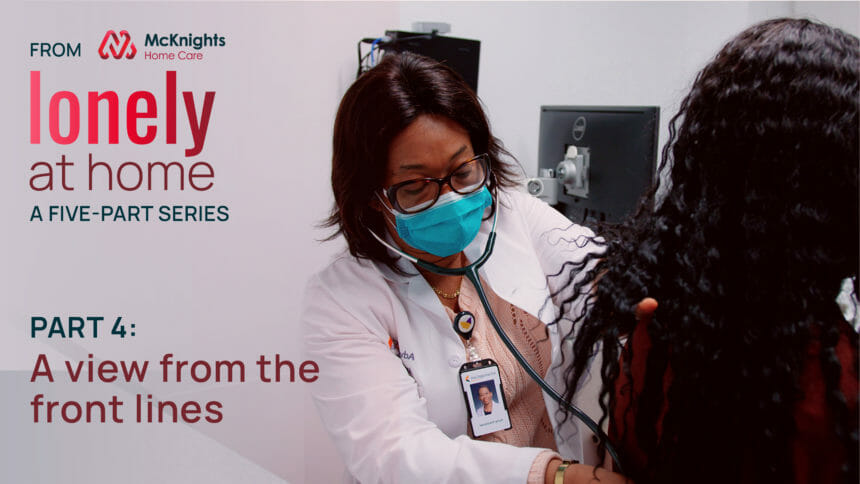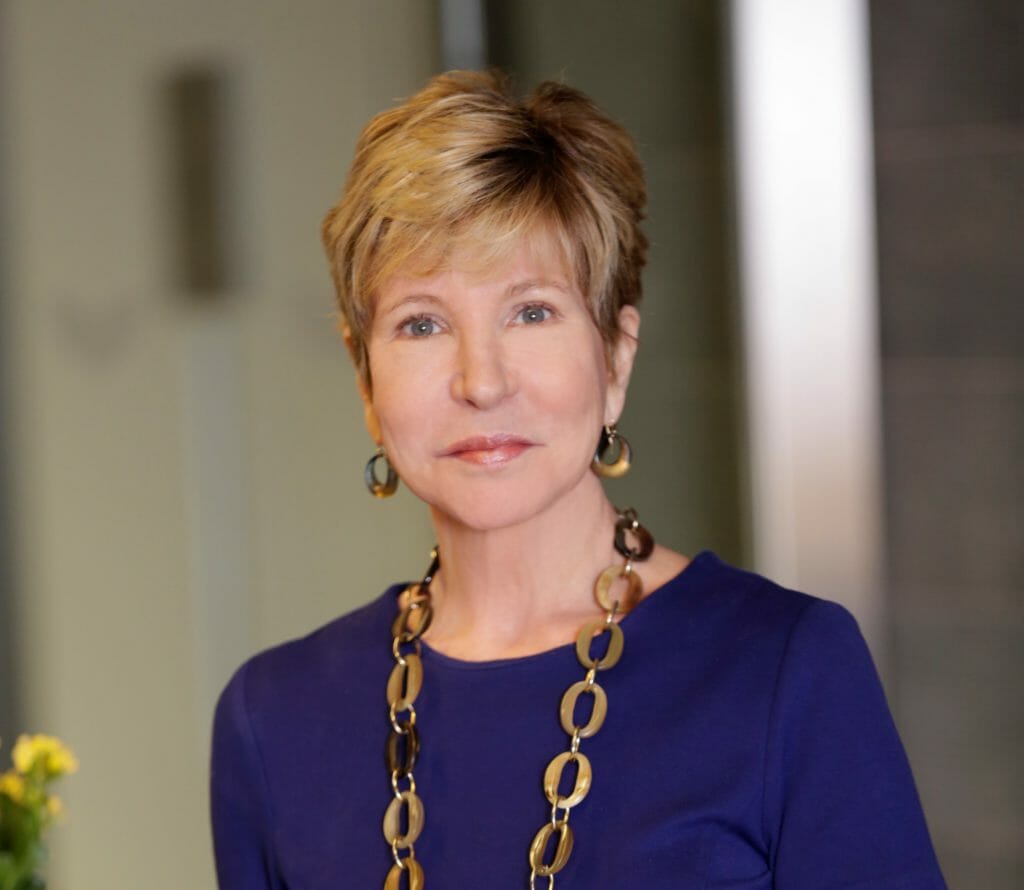
Editor’s note: This is the fourth article in a series on how loneliness and isolation are affecting seniors at home. It stems from writer Diane Eastabrook’s participation in the 2021 Age Boom Academy, a free training fellowship of the Columbia Journalism School and the Mailman School of Public Health. Read the series here.
New York City’s EmblemHealth has been on the front lines of street-level healthcare since the Great Depression of the 1930s. The nonprofit — which provides health insurance, primary care and community care centers to 3.4 million low income residents — noticed a concerning trend developing months before the COVID-19 pandemic sent the Big Apple into lockdown.

“A number of our neighborhood care team members were seeing loneliness, social isolation and a variety of ways to describe the same thing,” EmblemHealth CEO Karen Ignagni told McKnight’s Home Care Daily Pulse. “People would come into our facilities because they wanted company, they wanted someone to talk with, they wanted a cup of coffee. They were just looking for social interaction.
The trend Immediately sent up a red flag to Ignagni who suffers from asthma. She recalled a conversation she had with her own physician and care team a decade earlier about the dangers of depression.
“A care manager asked me if I had ever felt depressed and I asked, ‘Why are you asking me that question?’ They educated me,” Ignagni said. “She told me there is a high correlation between individuals who have chronic illness and those who are depressed.”
The link between loneliness and chronic illness is complex. According to the Centers for Disease Control and Prevention, loneliness is associated with higher rates of depression, anxiety and suicide. Depression is also known to exacerbate a number of chronic illnesses, including heart disease, diabetes, cancer and Parkinson’s disease.
Knowledge is power
Armed with that knowledge, Ignagni and her team at EmblemHealth were ready to spring into action when the pandemic hit New York City, forcing residents to hunker down in their homes. The nonprofit launched its Peace of Mind initiative, which tapped staff to make phone calls to 30,000 Medicare beneficiaries to check on their health and emotional well-being. EmblemHealth also developed a series of online classes, including meditation and yoga, to help people cope with the stress of loneliness and isolation. Ignagni said the initiatives are paying off.
“In talking to a number of our beneficiaries, we could tell that it made a difference to reach out and connect. That’s what helps with social isolation. People don’t feel that there is a connection and when you have it, it makes such a difference,” Ignagni explained.
Part of the growth strategy
Tackling isolation is at the forefront of EmblemHealth’s growth strategy as it expands its footprint into the home. The company already has partnerships with home-and-community-based services to deliver some home care services and is exploring the delivery of other in-home services, including infusions and dialysis.
For Ignagni, increased access to the home brings increased responsibility to ensure that a patient’s physical and emotional needs are being met.
“We want (caregivers) to be on the lookout,” Ignagni said. “ What else do they see? Social isolation challenges you to do that.”
Coming Friday: In a podcast, Linda Fried, M.D., dean of Columbia University’s Mailman School of Public Health, discusses the dangers of loneliness and how to solve it with Staff Writer Diane Eastabrook.



